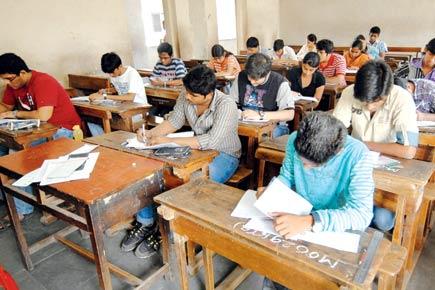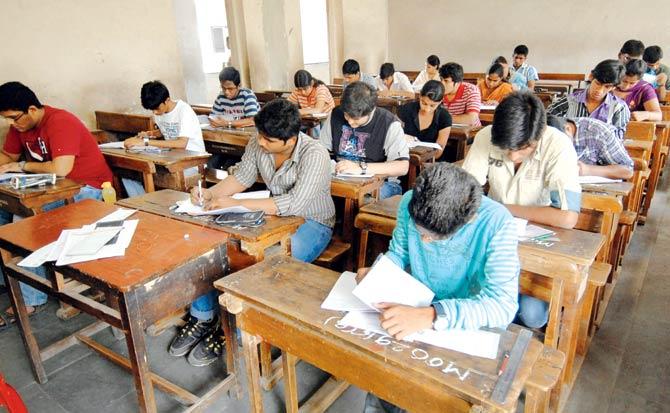The social sciences, to put it simply, help us make sense of the world. But why should our education system care about that?

The education department hasn't even begun to tackle issues that actually matter. Few schools in rural areas have decent classrooms, latrines or drinking water

The education department hasn't even begun to tackle issues that actually matter. Few schools in rural areas have decent classrooms, latrines or drinking water.
 Geography may soon become history in Maharashtra schools — read the headline in a newspaper a few days ago, buried under presumably more important news stories involving film stars and the state of cricket in India. According to the report, the Maharashtra education department has decided that social science subjects at school level can be optional. In other words, students can decide not to study them if they are not in the mood. Apparently, vocational education will be offered as an alternative instead.
Geography may soon become history in Maharashtra schools — read the headline in a newspaper a few days ago, buried under presumably more important news stories involving film stars and the state of cricket in India. According to the report, the Maharashtra education department has decided that social science subjects at school level can be optional. In other words, students can decide not to study them if they are not in the mood. Apparently, vocational education will be offered as an alternative instead.
ADVERTISEMENT
Naturally, my first reaction to this report was one of surprise, because I assumed that the education department existed only to issue letters to schools — informing them about holidays during festivals in order to appease politicians, or to ask them to make yoga compulsory to appease a few other politicians. That it was
actually making decisions about education came as a bit of a shock.
I realised that the report listed subjects like geography, political science, history, civics and economics among those that may no longer be compulsory. What exactly did that leave students? Also, what vocational education would they be offered instead? Plumbing? Painting? Sales? Like most ideas emerging from the government of Maharashtra, it didn't make much sense.
Apparently, this was to be a part of an initiative aimed at making our country 'skilled' which, mysteriously, wouldn't be possible if we kept teaching students pointless things like the history of our country and the world, or where India is on the map, or why we pay taxes. There was more. The report also stated that a regulation had allegedly been introduced to make mathematics and English optional at school level. It was supposedly to be implemented only in rural schools for now — to help youngsters there learn some skills, before being implemented in urban areas as well.
I assumed these ideas had come from people who had unfortunately been denied access to a decent education, which is usually the case. After all, anyone with half a brain would have been able to figure out why it sounded like an astonishingly half-baked idea. Maybe they simply didn't understand what the social sciences did. Maybe they didn't know that, for instance, they help us understand everything that's right or wrong about the society we live in.
The social sciences, to put it simply, help us make sense of the world. They focus on issues like poverty and governance, family, education, what makes economies grow or shrink, how these economies affect our families and us, why our culture is important and how it is appropriated, and why social groups are born or die. In short, without the social sciences, we will all have a very difficult time trying to figure out what we were all doing here — a situation that is alright in a place like Mantralaya, but not recommended in the real world.
I may be jumping the gun, of course, because this is still reportedly at a planning stage. Maybe the reporter got it all wrong too, so I suppose I ought to give the education department the benefit of doubt for now. Yet, I can't seem to shake off the possibility that some government will, at some point in our future, foist an idea as spectacularly stupid or worse upon our young, unsuspecting students.
It's amazing that the education department hasn't even begun to tackle issues that actually matter. For instance, a couple of years ago, India ranked second last among 73 countries participating in the Programme for International Student Assessment (PISA), which is conducted annually to evaluate education systems worldwide by the Organisation for
Economic Co-operation and Development Secretariat. Few schools in rural areas have decent classrooms, latrines or drinking water.
The safety of children in schools is not guaranteed, even in urban areas. There aren't enough seats at some levels, and way too many institutions offering subjects that have few takers at other levels. We excel at rote learning and discourage curiosity.
Earlier this year, a national employability report pointed out that more than 80 per cent of engineers in India still remain unemployable. And yet, none of these issues appear to have been tackled with even a modicum of seriousness by any department. Why? Maybe the education department's master plan is to create a generation of students in Maharashtra who know nothing about the world, exercise their intelligence as little as possible and become self-centred clowns unable to find solutions to any of life's problems. In other words, the department wants to create a generation of students qualified only to become politicians in Maharashtra.
When he isn't ranting about all things Mumbai, Lindsay Pereira can be almost sweet. He tweets @lindsaypereira Send your feedback to mailbag@mid-day.com
 Subscribe today by clicking the link and stay updated with the latest news!" Click here!
Subscribe today by clicking the link and stay updated with the latest news!" Click here!







